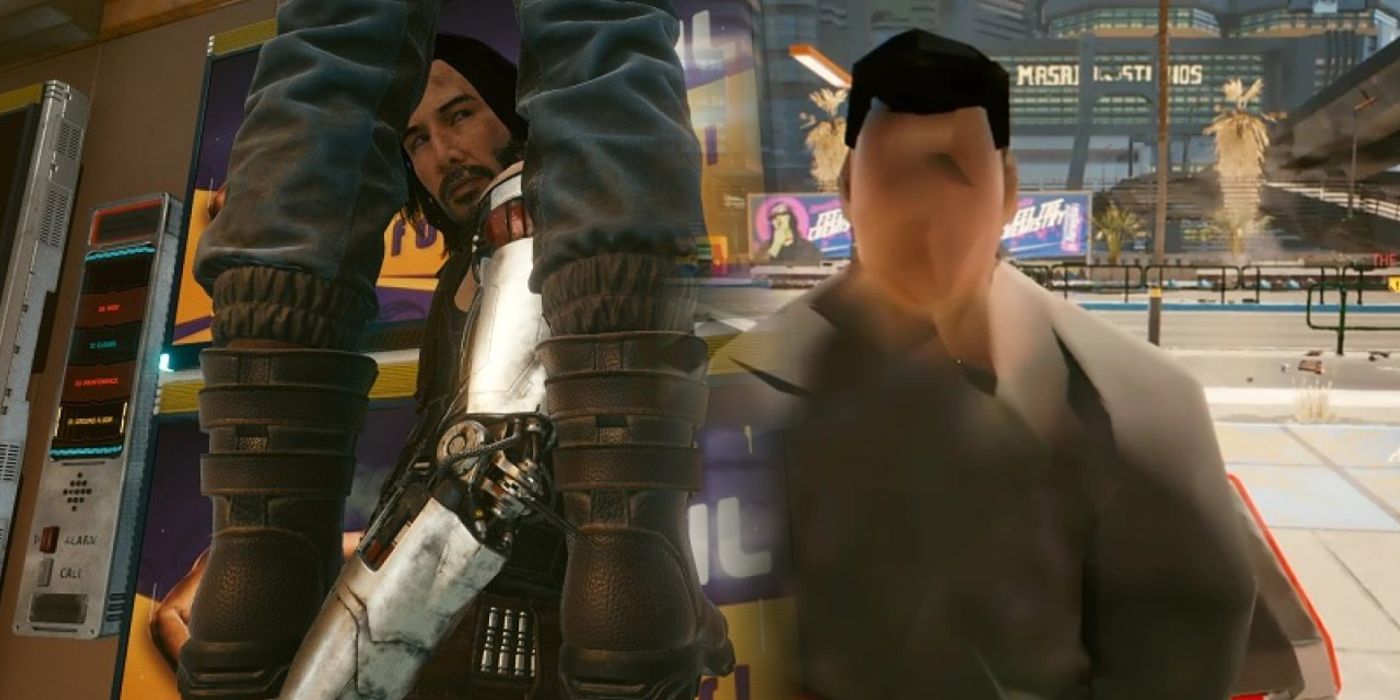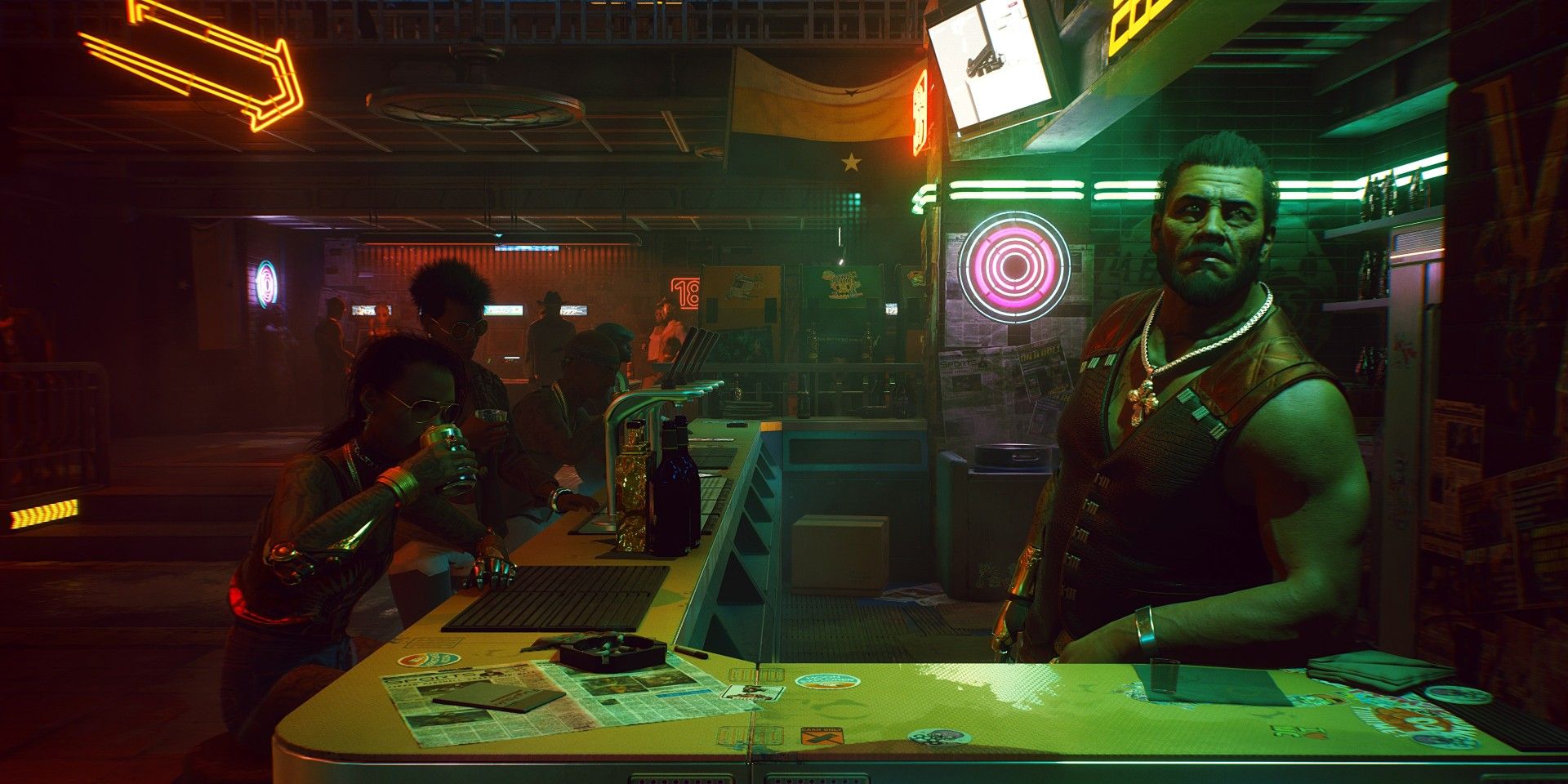Cyberpunk 2077's bug fixing restarts aren't just frustrating, preventable glitches that should never have made it to launch at the volume they're present in - they're also thematically relevant if players do enough mental gymnastics to rival an Olympic broadcast. Cyberpunk 2077 is currently in the midst of several different controversies, only some of which are related to its bugs - but the rest aren't really as funny and merit some serious discussion about developer transparency, pre-launch expectations, and more.
As far as Cyberpunk 2077's bug fixing restarts go, however, they're largely pretty humorous. While restarting the game can be annoying, Cyberpunk 2077 load times move at a surprisingly quick clip on PC, and some of the glitches are genuinely enjoyable. Whether it's early game standout Dum Dum getting an extra couple of scenes to shine or characters T-Posing their way through the streets of Night City, a lot of Cyberpunk 2077 bugs are reminiscent of those found in Bethesda games: Easy to fix, immersion-breaking, but hilarious problems that can spawn memes out of the simplest interactions.
Of course, actually solving the problem of Cyberpunk 2077 glitches and resuming the game isn't always as simple as walking away from a weird, faceless NPC. A lot of Cyberpunk 2077's bug fixing is restarting the game and maneuvering around whatever problem is currently presenting itself to V. While that's undoubtedly something that shouldn't occur with the frequency it is, it's also a thematically relevant meta examination of what goes into a game about hacking and player agency - even beyond the game.
Cyberpunk 2077's Bugs & Glitches Keep True To Its Theme
Cyberpunk 2077 is a game that's deeply rooted in a version of hacking culture. In the world of the game, hacking has become something that's essentially every day practice - and it's even more powerful in 2077 than it was in 2020. Hackers can reclaim their agency by subverting corporate restrictions and interference, striking it rich or attempting to incite a revolution in the face of Cyberpunk 2077's relentless capitalist dystopia. In-game, hacking is a quick way to snag extra money, resolve conflict without raising a weapon, and fight back against the villainous plots that unfold from the Arasaka Corporation and other evil entities.
When players need to work with Cyberpunk 2077's bug fixing restart process, they're kind of doing what V is doing in the game - "hacking" their way through problematic code in order to get what they want. Here, it's simple fixes like restarting the game, tracking what triggers specific bugs, and circumventing them, but from a broad perspective, Cyberpunk 2077's bugs help players achieve a sort of thematically relevant immersion into the game's ethos, which is taking back power and using ingenuity to solve big, progress-blocking problems. It's certainly a stretch, but it could be read as something metatextual, even if it's not intentionally implemented as such. In a way, the DIY fixes that are emerging out of the game's passionate fanbase - Cyberpunk 2077 modders are already trying to fix the game - line up perfectly with some of the messaging that colors its thematic concerns.
Obviously, Cyberpunk 2077 glitches and the bug fixing restart process that so often accompanies them are much more frustrating than they need to be. If nothing else, though, the way players are interacting with them, coming together to try to fix them, and interrogating why this was able to happen in the first place has the feeling of a thematically relevant moment occurring outside of the game. Cyberpunk 2077 needs fixing, especially on consoles, and that shouldn't be downplayed, as plenty of people are justifiable upset about the state of the game. However, it's also provided fans with a weird, kind of cool meta moment along the way, even if CD Projekt Red never intended for that to be the case at launch.


